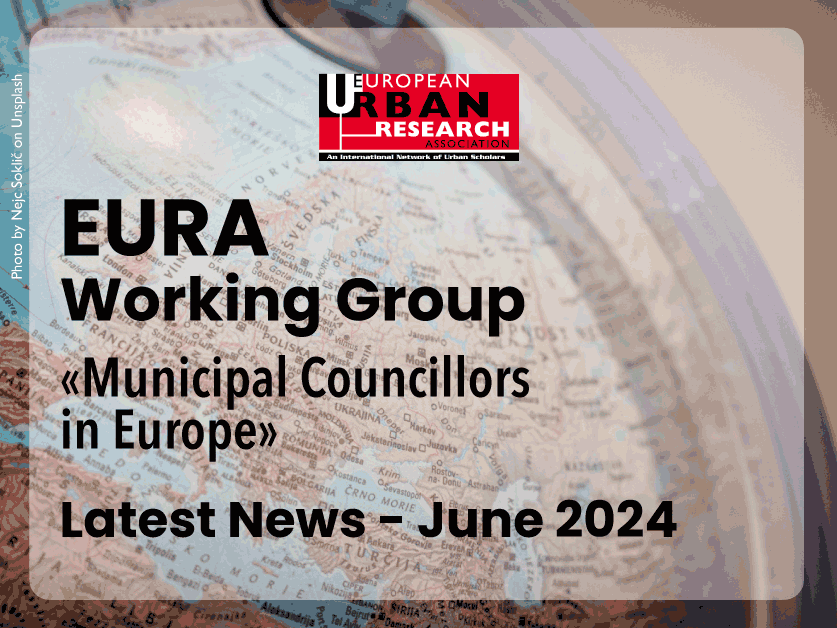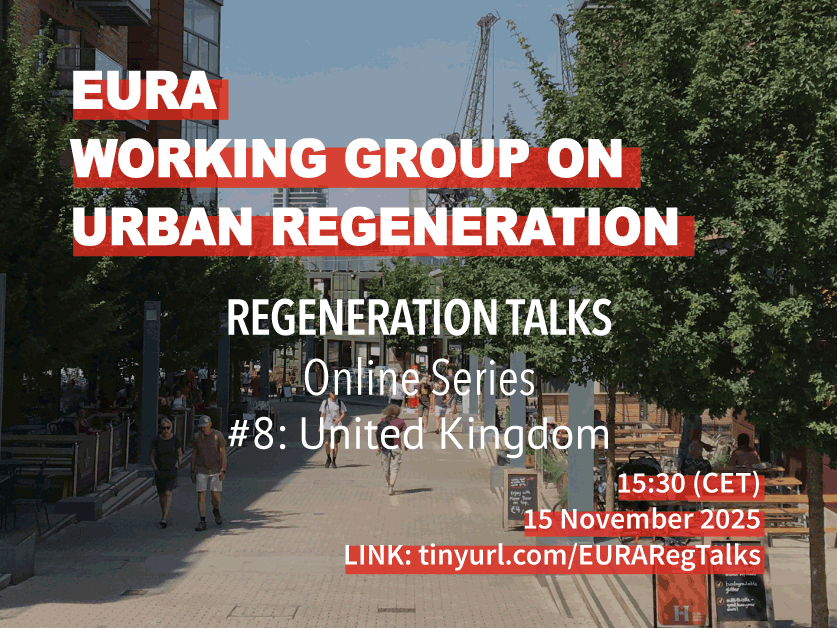
EURA Working Group on Recentralisation – News June 2024
03/06/2024
#64 Cities and the defence of democracy
14/06/2024
EURA WORKING GROUP ON
MUNICIPAL COUNCILLORS IN EUROPE
News, June 2024
Organisers:
Björn Egner
Hubert Heinelt
Jakub Lysek
Tom Verhelst
The working group has finished the survey on municipal councillors in Europe by the end of May 2024.
The survey covered councillors from 29 European countries. In contrast to an earlier survey, carried out in 2011/12 by the same network, coverage will be improved significantly by including 13 additional countries, but also by broadening the survey geographically within the countries (e.g. by widening the scope from England to the whole of the UK) and by including also municipalities with less than 10,000 inhabitants.
By the next workshop of the working group, which will take place at the Palacký University in Olomouc (Czech Republic) at the end of November 2024, the partners involved will have begun analysing the survey data collected and will present initial drafts of chapters for a joint publication there.
In the meantime, a contract has been signed with Palgrave for this joint publication. It will consist of two volumes with the following contributions:
MUNICIPAL COUNCILLORS IN EUROPE (working title)
edited by Björn Egner, Hubert Heinelt, Jakub Lysek and Tom Verhelst
VOLUME I. Profile and Roles
Part 1: Introduction
Chapter 1. Introduction: Studying Municipal Councillors in Europe (by the editors)
Chapter 2. Local government systems. Grasping the institutional environment of municipal councillors in Europe
Chapter 3: Councillors: Who are they? The social profile of the councillor
Chapter 4: How does one become a councillor? Patterns of European councillors’ political career
Chapter 5: How do councillors spend their time? Time investment of municipal councillors across Europe
Chapter 6: What risks do councillors run? Abuse and intimidation of municipal councillors in Europe
Chapter 7: Who do councillors represent? Electoral rules and descriptive representation among municipal councillors in Europe
Chapter 8: Do female councillors promote gender equality? The promotion of gender equality by municipal councillors in Europe
Chapter 10: Councillors: for what do they stand? Left-Right measurement of parties across Europe using councillor self-assessments
Chapter 11: Councillors and party politics. Representation, rhetoric and reality
Chapter 12: Do female councillors have distinct policy agendas?
Chapter 13: Councillors’ role in ecological transition agendas. Municipal Councillors’ local agenda in the ecological transition in Europe
Chapter 14: Councillors’ spatial policy goals and land use change. The salience of spatial policy goals among European municipal councillors as a land use change explaining factor
Chapter 15: Councillors as scrutineers. Scrutiny focus and instruments
VOLUME II. Citizens and Government
Part 1: Introduction
Chapter 1. Introduction: Studying Municipal Councillors in Europe (by the editors)
Part 2: Councillors and the citizensChapter 2: Councillor’s notions of democracy. The notion of democracy among municipal councillors in Europe
Chapter 3: Councillors and citizen participation. Role conceptions of municipal councillors in participatory initiatives in Europe
Chapter 4: Trust, democratic values, and attitudes vis-à-vis citizen participation
Chapter 5: Politicians ́ monitoring of public opinion
Chapter 6: Local councillors' communication in the age of social media
Chapter 7: Political styles of European councillors
Chapter 8: Value orientations of European councillors and territorial reform traditions. Understanding the role of local government: The perspective of municipal councillors in Europe
Chapter 9: Councillor’s views of the quality of local government. Quality of government on the municipal level: the view of municipal councillors in Europe
Chapter 10: Navigating local governance. Insights from municipal councillors
Chapter 11: The North-South divide in attitudes of municipal councillors in Europe
Chapter 12: Municipal Politics in Ethnically Divided Societies
Chapter 13: Councillors’ perceptions of the role of non-public actors in policymaking. Perceived role of non-public actors in local government decision-making by municipal councillors in Europe
Chapter 14: Councillors’ attitudes regarding public service provision. European municipal councillors’ attitudes regarding the organisation of public services
Chapter 15: Councillors’ notions of transparency and management values
The titles of the chapters are provisional. The planned chapters also do not include author names to ensure that the future review process is truly anonymised.






